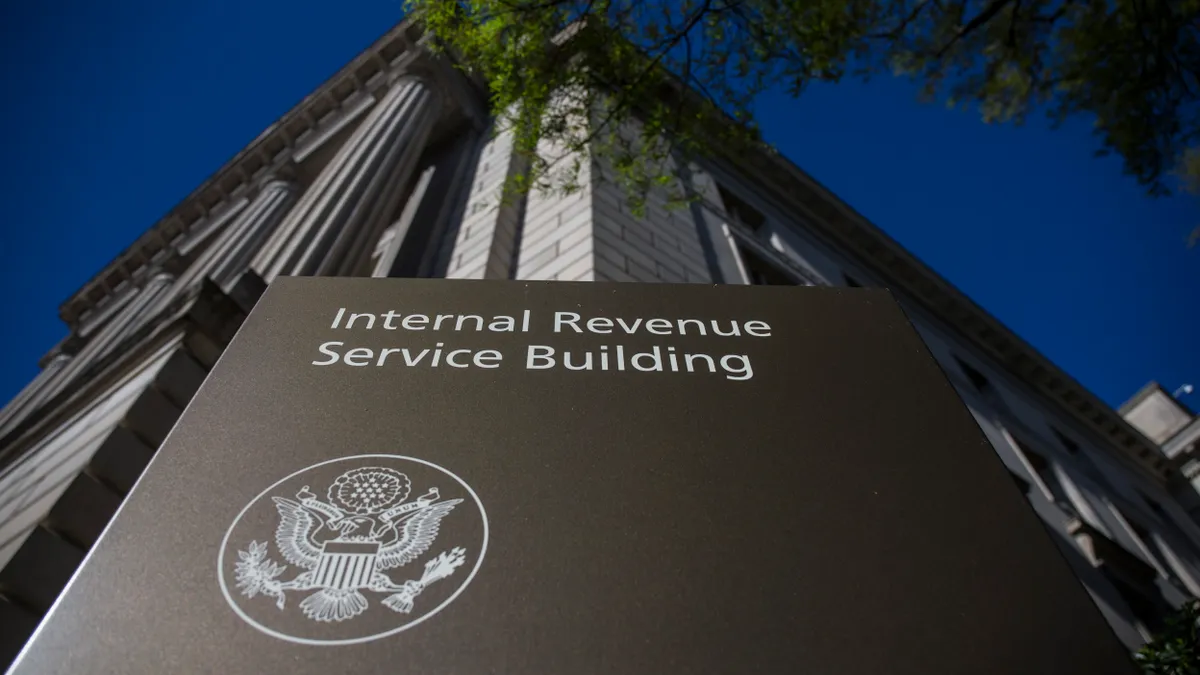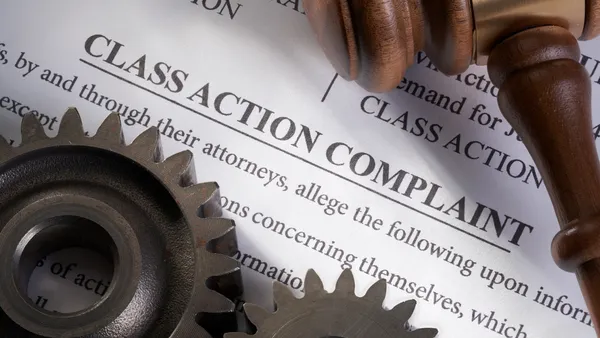Dive Brief:
-
The Biden administration aims to increase corporate and individual tax revenue by $700 billion over the next decade, in part by increasing the budget for the IRS by $80 billion during the same period, according to a U.S. Treasury Department plan.
-
The IRS budget has shrunk by about 20% over the past decade, prompting a decline in the number of specialized auditors and other critical staff, and increasing the difference in taxes owed and taxes actually paid to $600 billion in 2019, the Treasury Department said.
-
Among the steps included in the plan, the IRS would replace 50-year-old core technology, hire and train enforcement agents, improve data analytics, step up reporting requirements, regulate paid tax preparers, and increase penalties for corporate and individual tax cheats.
Dive Insight:
The Biden administration last month proposed a 10.4% increase in the outlay for the IRS for fiscal year 2022 to $13.2 billion, including a $900 million increase in the budget for enforcement focused primarily on corporations and wealthy taxpayers. Every $1 spent on enforcement yields at least $4 in direct revenue, according to the IRS.
The proposal “makes sure that corporations actually pay what they owe,” Treasury Secretary Janet Yellen said in a statement.
Biden is also seeking congressional approval for a package of tax increases that would include raising the corporate tax rate to 28% from 21% and the minimum tax on the foreign profits of U.S. companies to 21% from 10.5%. Over a 15-year period the proposal would fully pay for $2 trillion in infrastructure spending, known as the American Jobs Plan, according to the White House.
The federal government could fund much of the infrastructure by closing the “tax gap” which, according to the Treasury, “will rise to about $7 trillion over the course of the next decade if left unaddressed — roughly equal to 15% of taxes owed.”
The tax gap has widened as the IRS, facing budget constraints, has been unable to replace retiring revenue officers with agents with comparable training and skills.
As a result, the IRS has fewer auditors today than at any time since World War II, the Treasury said, adding that the share of all corporate returns audited fell 37% from 2010 until 2018. The share of returns audited from corporations with assets exceeding $20 billion plunged by 50%.
Investment in IRS technology is imperative, the Treasury said, noting that its individual and business file systems date to the 1960s — the oldest in the federal government — and are “written in a programming language that is no longer taught.”
New technology is essential for defending against “threats to the security of the tax system,” including 1.4 billion cyberattacks annually launched against the IRS, the Treasury said.












